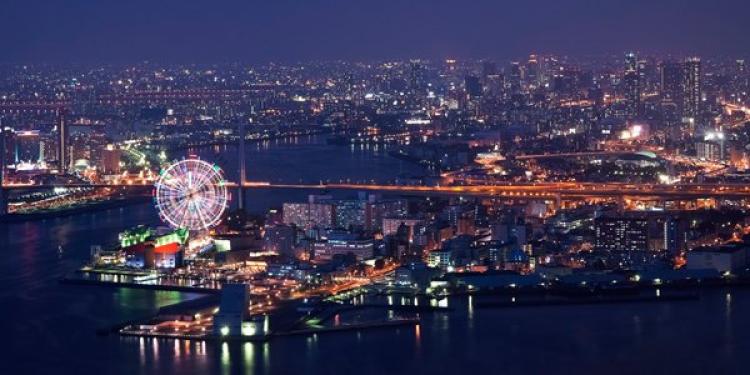Local Authorities Still Struggling to Bring Casinos to Japan
Posted: November 18, 2014
Updated: June 4, 2017

Japan’s largest cities are looking to revive the economy with the help of a “casino special zone”.
It’s been over a year since Tokyo was chosen to host the 2020 Olympic Games and Japan has still not made its mind up about casinos. A new bill to lift the ban on gambling in the country has recently been shelved and the debate won’t be picked up again until the Diet session next year.
However local governments have shown interest in hosting casino resorts, hoping that this will give the economy a much needed boost. The Osaka Prefecture and the city of Osaka have been particularly eager to get the casino industry up and running.
“We have to win this competition at any cost, even if it means dragging down our rivals,” said Osaka Mayor Toru Hashimoto. The Japan Innovation Party, where he is co-leader, has been doing its best to support any casino projects in the country. Ichiro Matsui, deputy of the political formation, is the governor of Osaka.
Reviving Yumeshima
The bill was submitted last year in December, when the Japan Innovation Party, the ruling Liberal Democratic Party and the opposition represented by the People’s Life Party all thought it was time to make an effort to kick-start economic growth in the country by allowing the construction of integrated resorts, with casinos, accommodation, shopping outlets and convention spaces.
Ever since the bill was first introduced, the Osaka Prefecture has been desperate to see the new Japanese gambling law approved and to start handing out casino licenses. The city was once considered to be the country’s primary economic center, but now it has about 4.8 trillion yen ($41.5 billion) in debt. The local Prefecture has reported a 6.3 trillion yen deficit, which is why Hashimoto and Matsui believe the salvation lies in opening the casino market.
Earlier this year, the prefectural and municipal governments have officially started to push for bringing a casino resort to Yumeshima, a man-made island being constructed in Osaka Bay and reclaimed for the region’s bid to host the Olympics back in 2008. But the attempt failed, leaving most of the island completely abandoned. If completed, it would spread across 390 hectares.
According to the city’s mayor, building one of the world’s largest casino resorts here would create 70,000 to 240,000 jobs.
Casinos, the “last hope” for Osaka
Osaka’s hopes and dreams for economic development date far back, to a time when the two local governments aggressively pushed for ambitious projects. The plan was to build several high-rise buildings and industrial districts, even though the city was going through a rough time financially.
Well the ambitious projects didn’t work out. In fact, they failed one after the other, mostly because they were based on an unrealistic view of what the demand is for such services. In 2008, Hashimoto was elected governor of Osaka after promising to revitalizing the prefecture, but all he was faced with more financial problems.
Now he is mayor of Osaka and he’s still not given up on his plan to build a casino resort on Yumeshima, as the local administration has said that hosting a gambling venue here was the “last stop” to bring the economy back on the right track.
What will the future bring?
Major casino developing countries have seen the same potential in Yumeshima, so they’ve been knocking on the doors of Osaka officials to ask for a chance to introduce their proposals. Matsui has already discussed the issue with eight gambling companies, but it looks like it will be a long time before the first Japanese poker rooms open their doors.
Among the eight potential partners was MGM Resorts International, the American casino giant that operated gambling venues in Las Vegas and Macau. According to chief executive officer James Murren, the company is ready to make an investment of investment of 500 billion yen to 1 trillion yen for its casino complex.
Top investors agree that Osaka has great potential to become a very popular gambling destination in Japan. The Kansai region has a population of 20 million and property costs less here than in Tokyo.
All these new opportunities have motivated Hashimoto and Matsui to keep pushing for the legalization of casinos in Japan. Local authorities have even discussed having a casino developer pay for a whole new railway network taking visitors to Yumeshima.
But as promising as they may sound, all these plans remain on hold while legislators still debate the idea of allowing gambling in the country. And as the saying goes: “Time is money”. And wasting more of it might end up costing Japan dearly.











